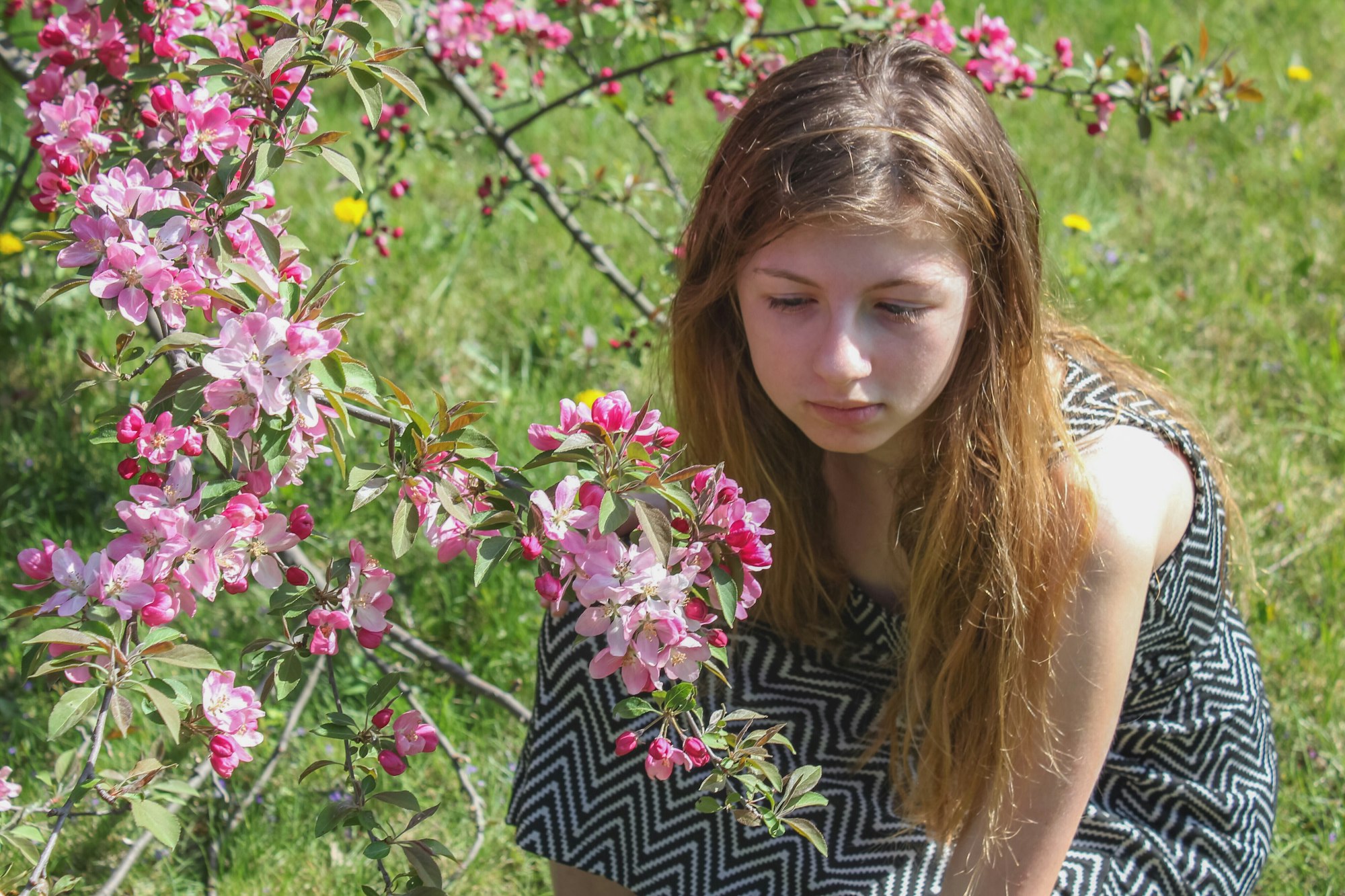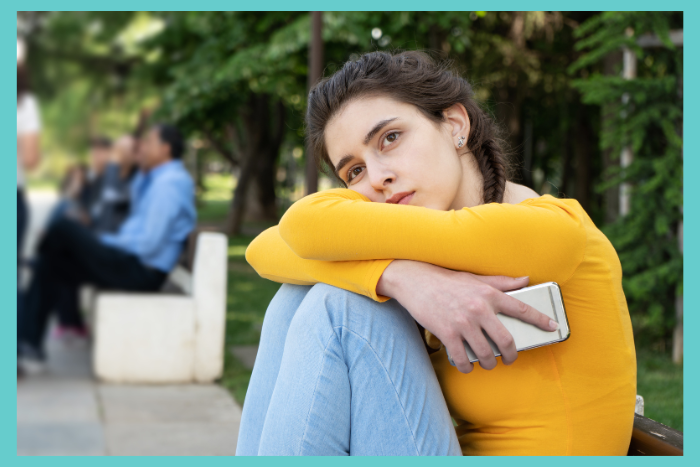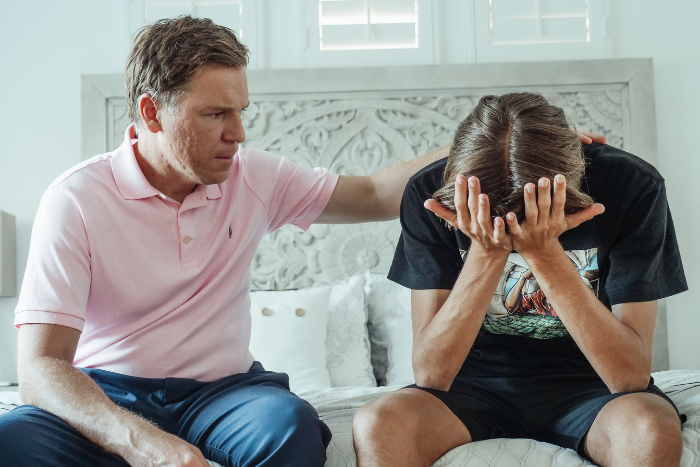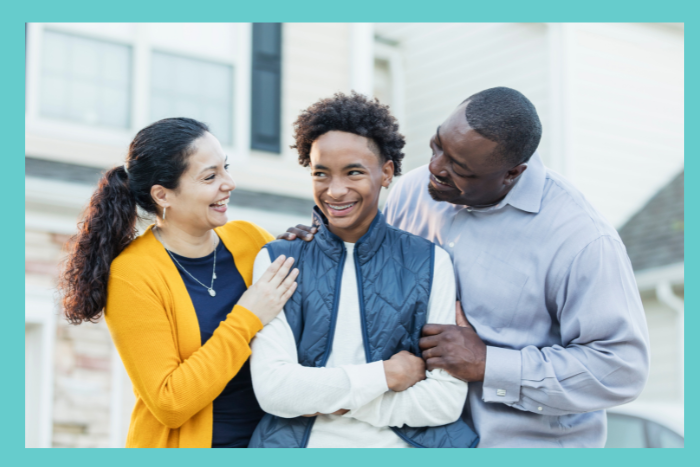Many people who survived tragedies like the Holocaust, Hiroshima, and the HIV/AIDS crisis struggled to understand why they made it yet so many others didn’t. The sense of remorse or regret that they felt is called survivor’s guilt. It’s a feeling anyone can experience after a traumatic event where other people were injured or killed. Even adolescents may feel survivor’s guilt after a car accident, a natural disaster or a school shooting.
Children may have an especially hard time with survivor’s guilt because most haven’t had much experience with loss yet. Dealing with both trauma and grief at the same time is difficult for anyone. As a caregiver, you play an integral role in supporting your child through their recovery process. They may also need comprehensive mental health treatment.
In this blog post, we’ll define survivor’s guilt as it pertains to young people and provide some information on how to support a child dealing with survivor’s guilt.
What is survivor’s guilt?
Survivor’s guilt is a feeling of guilt, regret or remorse after escaping a situation relatively unharmed or unaffected compared to others. The survivor typically isn’t responsible for the deaths, and they couldn’t have seen them coming in advance. People don’t necessarily have to witness violence or trauma to have survivor’s guilt. The most critical factor is the sense of responsibility or unfairness they feel.
There’s usually no rhyme or reason in these situations as to why certain people were compromised while others were spared. People experiencing survivor’s guilt may ruminate about what happened, become depressed or anxious, or have flashbacks of different aspects of the event.
Why do people experience survivor’s guilt?
People have a natural inclination to want to understand why things happen the way they do in matters of life and death. We want to make sense of things, even when there is none. Those who have a deep sense of empathy and care about others may be particularly bothered when people are harmed for no apparent reason. Those who feel guilty about things they’ve done in the past (or things they didn’t do) may feel that they’re less deserving of life than the others who died.
Terrible situations always seem clearer after they’ve come to a conclusion. Even when we have an intuitive sense that something may be wrong, there’s usually no way of predicting exactly what will happen or knowing what we can do to prevent it. This tendency to see things more clearly after the fact is called hindsight bias. It’s a natural and common response, but it can add fuel to the fire of survivor’s guilt.
What are some signs and symptoms of survivor’s guilt?
Survivor’s guilt isn’t a clinical diagnosis. However, it can be a significant part of conditions like complicated grief, anxiety, and post-traumatic stress disorder (PTSD). Survivor’s guilt may pass as the person is able to process their grief, although it often requires mental health treatment. It becomes dangerous when it starts to influence a person’s core beliefs about themselves and about the world. For example, a person with survivor’s guilt may start to see themselves as a bad person. They may have a hard time trusting others or seeing the good in the world.
Some symptoms associated with survivor’s guilt include:
- mood swings and outbursts
- obsessive thoughts about the event
- feelings of helplessness or hopelessness
- a sense of detachment from others
- self-isolation
- flashbacks of the traumatic event
- a lack of interest or motivation
- difficulty concentrating
- appetite changes
- problems with sleep
- headaches
- nausea or stomachache
- irritability
- racing heart
- suicidal thoughts
How to help your child deal with survivor’s guilt
Your child will need time to process their grief and overcome feelings of guilt. Let them know you’re there to talk whenever they’re ready. Validating their feelings while reassuring them that they’re a good person and they are loved is critically important. Remind them that no one blames them for what happened. Give them opportunities to ease back into their activities and ask if you can help them find ways to “give back” or honor those who didn’t make it.
Here are some ways you can help your child with survivor’s guilt:
- Talk with them about what happened and listen without judgment.
- Reassure them that their feelings are understandable, but no one could have predicted or changed the outcome.
- Reassure them that you’re glad they made it and that their life has meaning.
- Encourage them to forgive themselves.
- Celebrate their victories and accomplishments with them.
- Help them consider ways to honor or memorialize the people who didn’t make it.
- Help them seek treatment.
It’s hard to watch your child struggle with tragic and traumatic losses. Being there to support them with empathy and compassion will help them in a big way. Nobody can heal emotional wounds like survivor’s guilt on their own. Surrounding your child and yourself with a community that understands will help your family get through the toughest moments on your healing journey.
At Embrace U, we help young people aged 10 to 18 navigate life-changing experiences and learn strategies to care for their mental health. We create a balanced and personalized treatment plan for each patient that includes one-on-one therapy, group therapy and family therapy sessions. We also hold sessions just for parents to help you learn about mental health topics and ways to create a stable and supportive home environment.
If you’re seeking a higher level of treatment for a young person, give us a call. Let’s talk about what your child needs to recover and stay mentally well.




